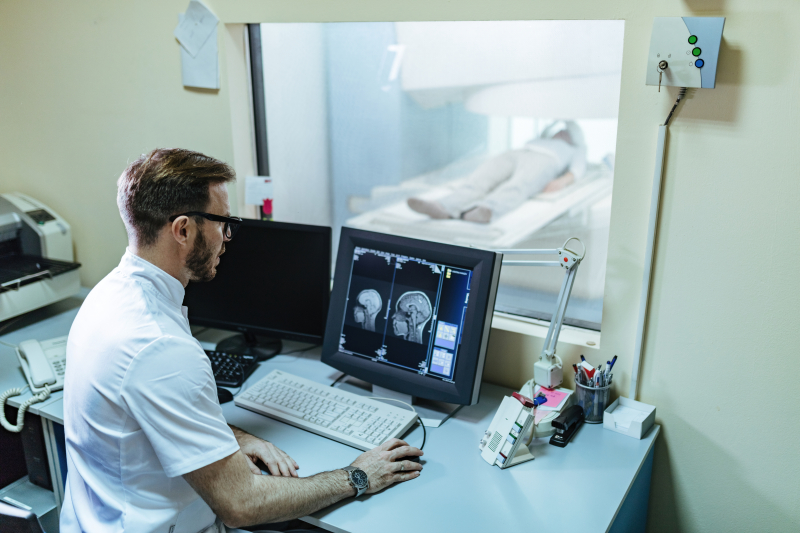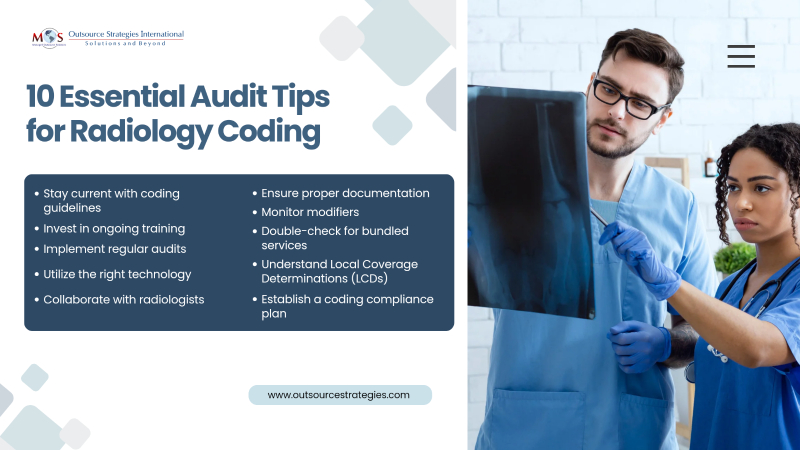Coding in radiology is a critical aspect of the healthcare industry, ensuring that medical procedures and services are accurately documented for billing and insurance purposes. Accurate radiology coding is essential not only for proper reimbursement but also for maintaining compliance with healthcare regulations.
Radiology coding audits are of paramount importance in healthcare practices for various reasons. They serve as a critical checkpoint to ensure billing accuracy, safeguarding the financial health of medical facilities. Additionally, these audits play a pivotal role in maintaining compliance with intricate healthcare regulations, protecting practices from costly penalties and legal issues. Moreover, they help in revenue protection by identifying and rectifying coding errors that might otherwise lead to underbilling or overbilling, ultimately preserving the practice’s financial stability. Importantly, radiology coding audits contribute to the completeness and accuracy of patient records, supporting healthcare providers in making well-informed decisions and delivering quality patient care. In essence, these audits uphold data integrity, which is fundamental in the pursuit of excellence in healthcare administration and service delivery.
Given the extensive array of imaging techniques available, medical coding services offer a pragmatic approach for healthcare providers to guarantee the accurate application of radiology procedure codes. Conducting compliance audits serves as a means to guarantee conformity with coding protocols and prevent complications related to reimbursement.
Radiology Coding Audits: 10 Tips for Success
- Stay current with coding guidelines
Radiology coding guidelines, including CPT (Current Procedural Terminology) and ICD (International Classification of Diseases) codes, are updated regularly. Ensure your coding team stays informed about these changes to prevent coding errors.
- Invest in ongoing training
Continuous training and education for your coding staff are crucial. Keeping them updated on the latest coding updates and trends helps maintain coding accuracy.
- Implement regular audits
Conduct routine internal audits to identify and rectify coding errors. These audits can uncover coding discrepancies, such as unbilled services, undercoding, or overcoding.
- Utilize the right technology
Leverage coding software and tools to streamline the coding process. These technologies can help reduce errors and improve efficiency.
- Collaborate with radiologists
Maintain open lines of communication with radiologists and other healthcare providers. Collaboration can help clarify coding requirements and ensure accurate documentation.
- Proper documentation
Ensure that the radiology reports are comprehensive and include all necessary details. Accurate documentation is the foundation of precise coding.
- Monitor modifiers
Use modifiers correctly to provide additional information about a procedure. Overusing or misusing modifiers can lead to coding errors.
- Double-check for bundled services
Radiology codes sometimes include bundled services. Verify that all bundled services are appropriately documented and billed.
- Understand Local Coverage Determinations (LCDs)
Familiarize yourself with Medicare’s Local Coverage Determinations (LCDs) and ensure that your coding aligns with these regional policies.
- Establish a coding compliance plan
Create a coding compliance plan that outlines your clinic’s commitment to accurate coding. This plan should include policies, procedures, and responsibilities for coding accuracy and compliance.
Radiology medical coding is a complex but crucial aspect of healthcare administration. By following these 10 radiology coding audit tips, radiologists can enhance accuracy, streamline operations, and ensure compliance with coding guidelines. Continuous education, collaboration, and a commitment to precision are key to successful radiology coding audits, which ultimately benefit both providers and patients.
Ready to optimize your radiology coding process?
Contact us for expert radiology coding services.






